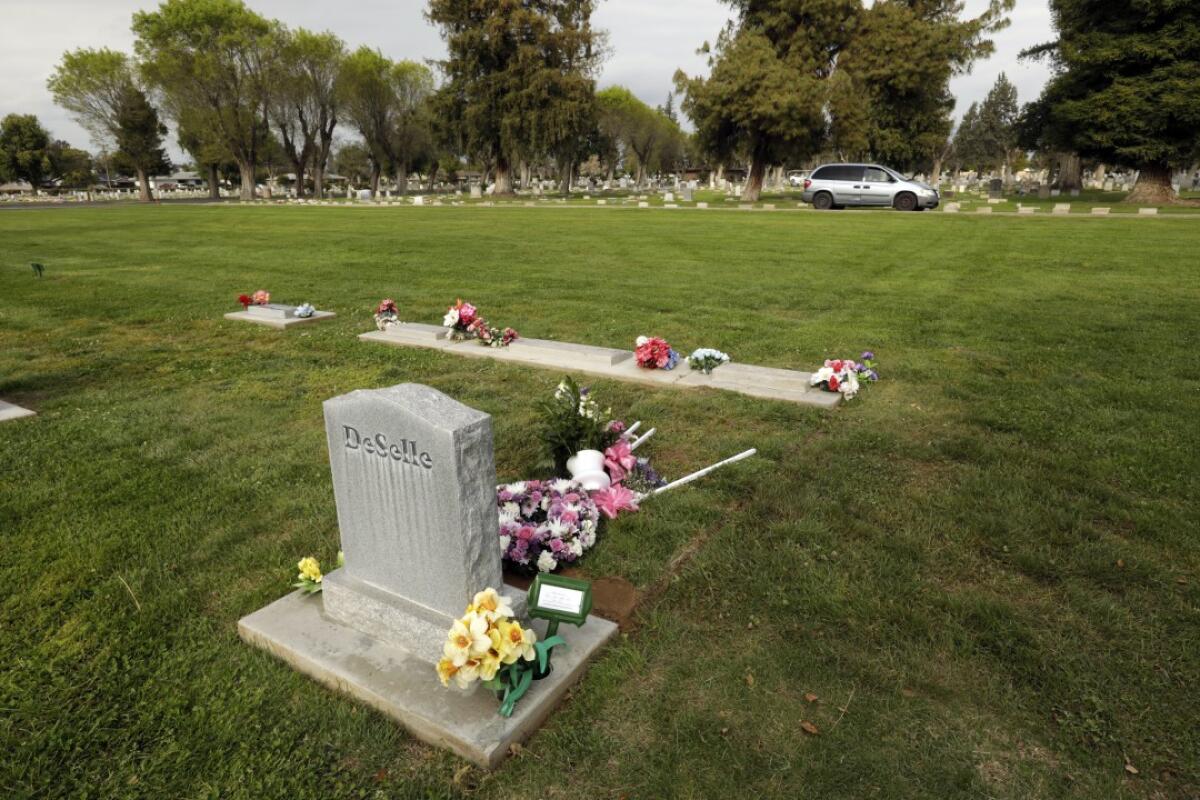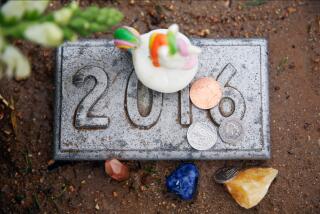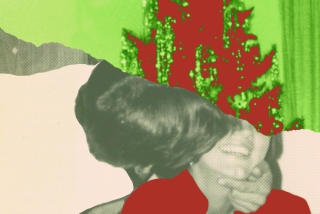From the staggering toll of the pandemic, a shared story of human kindness emerges

- Share via
Alex Bernard dedicated his life to ministering to people who were suffering. As a pastor at Desert Reign Church in Downey, he organized food delivery programs, mentored young people and worked as a substance abuse counselor. He also volunteered as a chaplain at the same hospital where he would eventually die of COVID-19.
“His whole life was serving other people,” said his wife, Blanca.
Bernard is one of more than 9,000 people who have died of COVID-19 in California. In documenting their stories for “The Pandemic’s Toll,” an ongoing tribute to California’s coronavirus victims, The Times has spoken with hundreds of people about their loved ones’ lives. Through those difficult conversations, a pattern of human kindness has emerged: Story after story touches on small acts of generosity and great acts of charity — fundraisers, volunteer work, reliable helping hands.
As a whole, the tributes tell the stories of ordinary people with ordinary lives who are remembered most for the extraordinary things, large and small, they did for others.
“He did so many things for so many people,” said Diane Akrie of her husband, Costelle Akrie, who dedicated much of his life to community service. Akrie procured millions of dollars in grants for veterans, started a program that provided bicycles for children and spearheaded a fundraiser to build playgrounds in East Oakland. When he died of COVID-19 on April 4, he was remembered as a person whose door was always open to someone in need.
John Pope, an obituaries writer for the New Orleans Times-Picayune for more than 40 years, said that it’s not uncommon for people to reflect on their loved ones’ good deeds while memorializing them, but that they are often surprised by the comments and notes they receive from others about the extent of that person’s impact.
“You do more good than you know,” he said.
Pope also explained that historically, the obituary pages of newspapers were reserved for “boldfaced names,” or people of notoriety (a directive he never agreed with), but that the pandemic has created a new imperative for telling a different kind of story.
“There are steady news reports every day of numbers,” he said. “Numbers ain’t people. You have to put a human face on the suffering.”
To scroll through the stories is to experience a cross section of the state. Many of the victims were older Californians living in nursing homes and rehabilitation centers where the virus boiled, passing from patient to patient.
Others were front-line workers, those without the luxury of working from home. Some had huddled with extended family members as jobs vanished and resources quickly dwindled. From grocery store clerks to music teachers to mail carriers, they are remembered not so much for what they accomplished for themselves but for what they did for others.
People like Herbert Segall, 91, who dedicated more than 20 years of his retirement to weekly volunteer guitar shows at the Jewish Home for the Aging, or Pedro Zuniga, 52, who took in foster kids even though it broke his heart each time a permanent home was found for them.
Their stories are powerful reminders not only of the virus’ rising death toll but also of the many, many ways a single life can touch so many others.
“It’s a record of how, often, many people we know did something good for somebody,” said David Sloane, a professor at USC’s Sol Price School of Public Policy and an expert on death and mourning. “And that’s a really important thing.”
Like the AIDS epidemic before it, the COVID-19 pandemic has reshaped the way we see the outside world and instilled a fear of the people around us, Sloan said. It may take years for Americans to unlearn social distancing — or simply not flinch when a stranger gets too close. But reflecting on the generosity of those lost to the virus can act as a reminder of what’s actually at stake.
“We’re in a moment where everything has become politicized,” Sloane said. “When you get to the point where we’re having fights about masks, this is one way to remind people that we’re losing good people who are doing good things for our community.”
People like Dulce Aguilo, 55, who worked as a caregiver for seniors with dementia, or Larry Robertson, 72, who spent more than 30 years raising funds for his high school, despite the fact that he never had kids.
Yet Pope was careful to emphasize that the purpose of an obituary is not to canonize (after all, who among us are saints?) but to uncover what makes a person unique. And that’s when true humanity most often emerges.
“When you’re doing an obituary, you ask, ‘How is this person different from all other persons?’” he said.
The power of their stories is undeniable, especially when taken as a whole. Either the virus is stealing exceptionally good people, or, more likely, almost every person has done some exceptionally good things.
It’s something the Rev. Najuma Smith-Pollard, pastor of Word of Encouragement Community Church in Los Angeles, is wrestling with as she leads her congregation across a changed landscape.
“Part of what’s been the tragedy of this is the notion of bad things happening to good people,” she said.
At the start of the pandemic, few people knew anyone who had been affected by COVID-19. Now, months on, nearly everyone has been touched in some way by the disease, and that ripple of loss has left people struggling to make sense of it all.
“It’s the everyday person down the street, or my mailman, or the young lady I see all the time at the grocery store,” Smith-Pollard said of the virus’ victims. “It’s proximity, but it’s also common ground.”
It’s people like Garry Bowie, who led a nonprofit that provided health and mental health services in West Hollywood. Bowie frequently counseled people who were newly diagnosed with HIV and didn’t know where to turn, and he often invited them to stay in his home. He was 59 when he died April 7.
For Susan McClellan, whose sister, Karen Hemm, died May 17, the story was a chance to reflect on the lessons of a life well lived: Hemm was a fierce advocate for people with disabilities, and she fought for legislation such as wheelchair ramps and accessible restrooms. She adopted a son with cerebral palsy and raised him as a single mother, and was remembered as a person who always went out of her way to include others.
“She,” McClellan said, “was a role model for all of us to follow.”
But the stories aren’t just about good deeds or happy memories. As much as they celebrate the beauty of life — the high school graduation, the trip to Hawaii, the romance rekindled — they are about pain and loss, heartbreak and missed connections, and what many have described as a frightening and lonely death.
It is in those darker moments that the families often grow reflective. Many said their grief is compounded by their inability to mourn for their loved ones in person, or even lean on a family member or friend when they need that support most.
And, like so many of the death notices that now fill the obituary pages, many of the tributes end with the same bleak reality — a canceled funeral, a memorial postponed to some uncertain future time. Often, the digital tributes offer the only forum where people can gather and grieve.
“It’s a way of creating a community without being communal,” Smith-Pollard said.
Although grief is a profoundly personal thing, she said, the ability to tell a loved one’s story — and to reflect on his or her acts of kindness, goodness or charity — can be incredibly meaningful.
“They’re part of the greater story of the lives lost in this pandemic, and that’s important. It is cathartic. And it’s healing, it’s very healing.”
More to Read
Sign up for Essential California
The most important California stories and recommendations in your inbox every morning.
You may occasionally receive promotional content from the Los Angeles Times.









